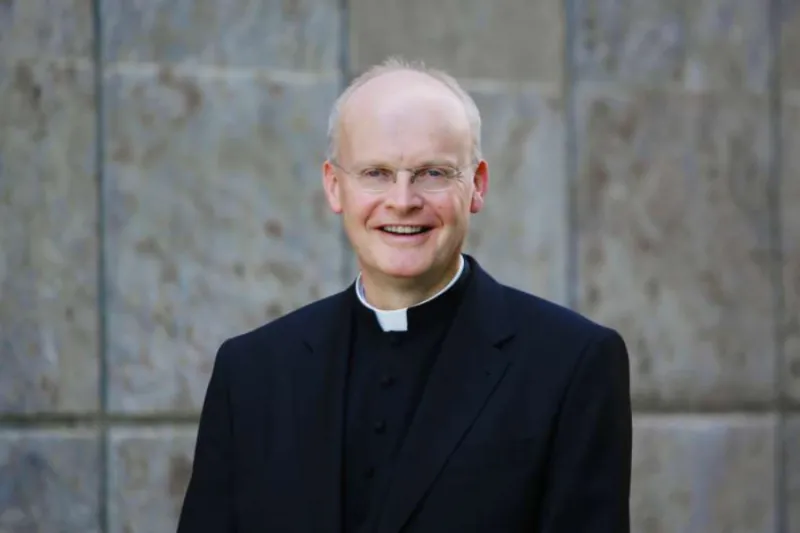
Essen, Germany, Mar 15, 2022 / 06:00 am (CNA).
A German Catholic diocese has commissioned 17 women to administer baptisms, citing a shortfall in the number of priests.
The Diocese of Essen, in Germany’s industrial Ruhr area, is the first diocese in the country to commission a group of women to administer the sacrament, reported CNA Deutsch, CNA’s German-language news partner.
Theresa Kohlmeyer, head of the department of faith, liturgy, and culture in the diocese, said that the step was necessary because there were “fewer priests than in the past.”
She added there was “a great need on the part of baptismal families for the most individual accompaniment and worship service possible.”
Bishop Franz-Josef Overbeck of Essen explained that the decision to commission lay people — 17 women and one man — for a period of three years was a response to “a pastorally difficult situation.”
More than 2.5 million people live in the Essen diocese, 724,047 of whom are Catholic. It is the smallest diocese in Germany in terms of area.
Im Bistum Essen taufen jetzt auch Frauen https://t.co/6BRgebyJUD
— Franz-Josef Overbeck (@bischofoverbeck) March 14, 2022
Canon 861 of the Code of Canon Law says that “the ordinary minister of baptism is a bishop, a presbyter, or a deacon.”
It adds that “when an ordinary minister is absent or impeded, a catechist or another person designated for this function by the local ordinary, or in a case of necessity any person with the right intention, confers baptism licitly.”
Bishop Gebhard Fürst of Rottenburg-Stuttgart announced in March 2021 that he would look into the possibility of baptism by lay pastoral workers, establishing a working group.
If you value the news and views Catholic World Report provides, please consider donating to support our efforts. Your contribution will help us continue to make CWR available to all readers worldwide for free, without a subscription. Thank you for your generosity!
Click here for more information on donating to CWR. Click here to sign up for our newsletter.





While Vladimir Putin appears hellbent to destroy Ukraine, Germany’s Catholic bishops appear hellbent to destroy Catholicism.
Vladimir initially demanded Ukraine neutrality as the sole requirement to avoid Russian incursion to enforce its will. That, since Nato, US, Ukraine rejection of a singular premise has, since Russia’s invasion regressed to further demands that would reduce Ukraine to a subservient vassal.
Vladimir Putin, visibly isolated, showing signs of paranoia, is in this writer’s opinion quite dangerous. A direct intervention [no fly zone] into Ukraine by Nato, the previously unthinkable, is actually being proposed. Winds of [world] war increase [credentialed pundits arguing cause for just war] as does a sense of inevitability.
Germany in contrast appears happily sauntering on the rosy path of SynodalWaywardness. An epiphany of freedom from rigidity [the Germans, by indication, have the support of a powerful opponent of rigidity]. A reformation absent of peasant revolt [except revulsion by the few faithful], free of garroting and stabbing of the insolent by the Princes. No fiery Luther. As if momentous crisis a hundred or more miles east were light years distant, as if a welcome cover for iniquity. After all, if we really believe in Christ’s words and actions that’s what it is.
Double pronged attack wasn’t invented by Schlieffen. It’s ancient. In this instance it has the earmark of the diabolic. Why Major Archbishop Shevchuk is on the mark about an evil spirit hovering over ravaged Ukraine.
Here, in the modern cradle of democracy the political climate has radically changed toward a socialist autocracy ironically similar to the iron fisted autocracy of the former Soviet Union, and the death dealing mentality of the former KGB operative that now rules Russia.
What can save us, Lord? If not a fervent appeal for the angels of peace and justice to dispel the evil.
Actually. Frontier to frontier Germany is 400 miles from Ukraine.